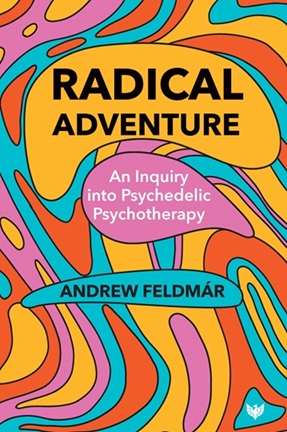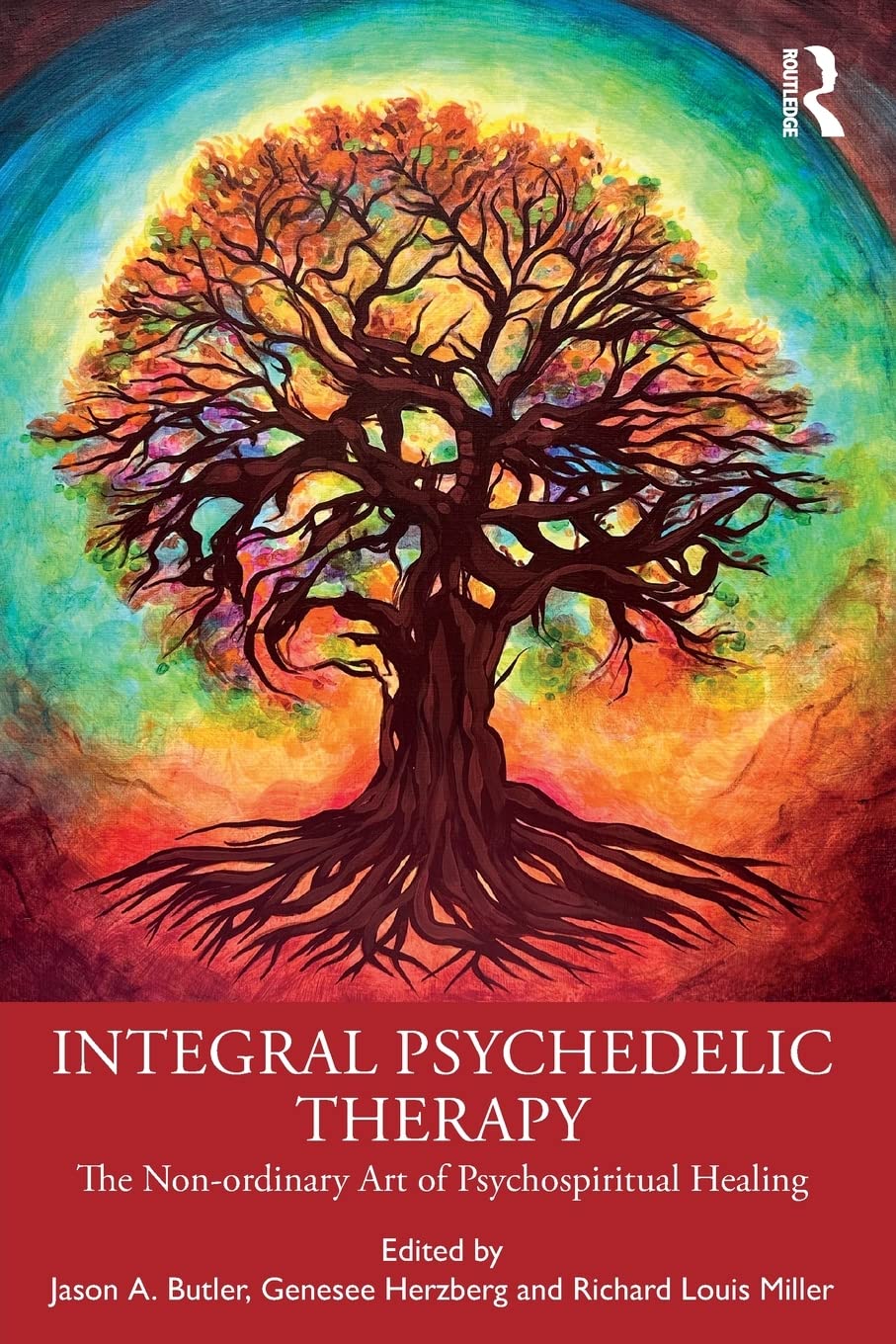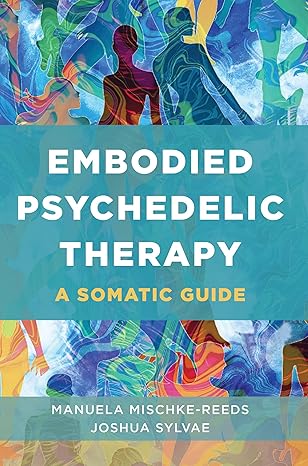Radical Adventure: An Inquiry into Psychedelic Psychotherapy

Book Details
- Publisher : Karnac Books
- Published : February 2025
- Cover : Paperback
- Pages : 94
- Category :
Individual Psychotherapy - Catalogue No : 97956
- ISBN 13 : 9781800133051
- ISBN 10 : 1800133057
Also by Andrew Feldmar
There are currently no reviews
Be the first to review
Andrew Feldmár trained under R. D. Laing and worked with Stanislav Grof and Paul Watzlawick. A pioneer of psychedelic psychotherapy, he presents its history, his personal experiences, and his wishes for the future of this radical practice. His aim: to prevent its medicalisation and to show that at its core is an organic relationship of two people.
At age twenty-seven, Andrew Feldmár accepted a tentative offer from his supervisor, Zenon Pylyshyn, a participant in the first experiments with LSD-25, to experience an LSD trip. Following that initiation, he took various other substances, always returning to LSD. During his apprenticeship with R. D. Laing, he was trained in Laing’s approach to LSD-therapy. A few years later, the use of these substances was prohibited. Now, after more than forty years, research has begun again into the healing possibilities of psychedelic psychotherapy. A movement has begun to have psychedelics, entheogens, and empathogens accepted worldwide as legal. However, training in how to use them varies.
Feldmár details fascinating stories of patients whose recovery hinged upon their use of LSD. He talks of how a single session of MDMA assisted many to attain insights that enabled their psychotherapy to proceed faster and deeper than before. He wants his experiences to help the next generation of psychedelic psychotherapists. They demonstrate that the most important aspect of psychedelic psychotherapy is the human connection: being involved and engaged with the other. There cannot be a protocol to follow, programmed music played, orders given. The therapist needs to feel at home within the altered state of consciousness of the patient during the session. The only way to learn this is through apprenticeship and time is running out as the older generation who worked in this way is dying out. The gains are high with this type of therapy, but so are the dangers. Thus, the focus needs to be not on the drug, but on the relationship between the therapist and the patient. Psychedelic psychotherapy is not for everyone but done well with the right patient and therapist, it can be transformative.
Reviews and Endorsements
An inspiring book of insights into the history and value of psychedelics from one of the first pioneers in the field. Andrew Feldmár shares a wealth of insights from early experiences of LSD therapy with Ronnie Laing to his recent role in the MAPS trials of MDMA for trauma. A delightful and thought-provoking account of the life of a remarkable human being.
Professor David Nutt, psychiatrist, leading researcher in neuropsychopharmacology at Imperial College London, and Chair of Drug Science
There is no denying that Andrew Feldmár is a psychedelic elder in a world of fledglings. His life spent alongside the great and good of psychedelic history speaks for itself. Weaving these experiences into inspiring stories, he describes for the reader their influence on his personal direction as he explores the importance of spirituality, the training of therapists, and fundamental processes at work in a psychotherapeutic relationship. The issue of trauma – and how trust and connection are the central cornerstones of psychedelic therapy – is paramount. Above all, he emphasises the importance of listening to and hearing our patients. Not just intervening. And in doing so, Feldmár provides a sense of urgency to the book. A determination to “get it (the psychedelic renaissance) right” this time around. But this does not mean he sees no value in today’s renaissance. On the contrary, as a clinician, Feldmár knows the importance of effective mental healthcare. And he has certainly played his part in the developing renaissance we are a part of. Feldmár is an elder, true. But his words and guidance are as cutting edge and contemporary as can be. Us fledglings would do well to sit up and listen.
Dr Ben Sessa, MBBS (MD), BSc, MRC Psych, consultant psychiatrist and psychedelic researcher, Bristol, UK
In what at times feels like an homage to psychiatrist RD Laing, Feldmár shares radical reflections from a pioneering career integrating psychedelics and psychotherapy. The book began as a synthesis of Feldmár’s work on altered consciousness, evolving through conversation into something more fluid. This suits his relational approach and makes for an engaging read […] For therapists curious about the psychedelic renaissance, this book offers a refreshing and challenging perspective that invites serious reflection on where the field is heading.
Ben Finch MBACP (Accred), integrative psychotherapist, Therapy Today 36(9), November 2025
Table of Contents
About the author
Preface
Chapter I: Personal history with psychedelics
First encounter
Do you really care?
The transformative experience
Chapter II: Radical psychotherapy
Treatment is how we treat each other
Interpersonal social phenomenology
The trouble is between us
Certainty is a tone of voice
Chapter III: Spirituality
Will not to will
No wisdom for one
Chapter IV: Training and mindset of the psychedelic therapists
I could hurt you but I won’t
What do you do when you don’t know what to do?
Surprises
No promises and no goals
About the Author(s)
Andrew Feldmár is a Vancouver-based psychologist and psychotherapist. His approach to therapy seeks to reconnect patients to the joys of everyday life through relying on loving, living relationships, rather than the alienation of the classical doctor–patient relationship. He was born in Hungary during WWII (1940), and after the 1956 revolution was defeated, he immigrated to Canada on his own at the age of 16. He graduated with honors from the University of Toronto with a BA in mathematics, physics, and chemistry, as well as an MA in psychology from the University of Western Ontario. He has been a psychotherapist since 1969.
During 1974–1975, he spent a year in London, England, intensively studying and training in the practice of psychotherapy under the renowned and controversial Scottish psychiatrist, R. D. Laing. During this year, he also studied with Francis Huxley (the anthropology of healing), John Heaton (existential psychotherapy), Hugh Crawford (community therapy), and Leon Redler (spiritual emergency). These relationships became lifelong friendships. Feldmár also worked with one of the founders of transpersonal psychology, Stanislav Grof at the Esalen Institute in California. He gained further experience in the field while volunteering at Hollywood Hospital in New Westminster, where LSD was legally used for research and therapy. He gained experience in brief psychotherapy in Palo Alto in the research group of Paul Watzlawick.
He has taught, lectured, and led workshops at SFU, UBC, Emily Carr University, and Douglas College. In 1989, he was a guest on a 3-part CBC Ideas radio series entitled R. D. Laing Today. He has also worked as a consultant in both television and film (e.g., Showcase’s Kink series, Neurons to Nirvana: The Great Medicines). Other career highlights include work with the United Nations; founding the Integra Households Association, a non-profit charity working with those in extreme mental distress; and Third Mind Productions, a film production company that went on to turn out the 1987 film, Did You Used to Be R. D. Laing?
He has also worked extensively overseas, mainly in Hungary, where he has published over 30 books. His first book, The Rainbow of States of Consciousness, is now in its third edition. Two organisations have been set up in Hungary, inspired by Feldmár. The Soteria Foundation was established in 1995 and became a pioneer of community psychiatric care in the country. In 2006, his colleagues and friends founded the Feldmár Institute, in Budapest, in order to popularise his theoretical and practical approach to psychotherapy.
He is well-known to international audiences in the field of psychedelic-assisted psychotherapy, having presented at numerous conferences on the subject. He took part in a research study sponsored by MAPS Canada in 2008 to demonstrate the efficacy of MDMA as an adjunct to psychotherapy in patients with severe PTSD. He was also a mentor in California’s Psychedelic-Assisted Therapies and Research program.
Customer Reviews
Our customers have not yet reviewed this title. Be the first add your own review for this title.
You may also like
Music and Altered States: Consciousness, Transcendence, Therapy and Addictions
David Aldridge
Price £29.99
Integral Psychedelic Therapy: The Non-Ordinary Art of Psychospiritual Healing
Jason A. Butler
Price £34.99








